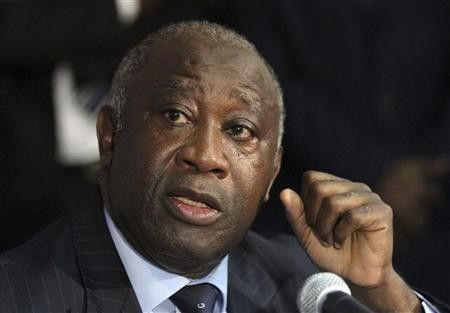Gas, goods and cash dry up as Ivory Coast crisis bites

Power cuts, shortages of medicine and cooking gas, empty cash machines, depleted shops and piles of uncollected trash: these were things Ivorians used to see as the scourge of their poorer West African neighbours.
Not anymore. An election dispute between Laurent Gbagbo and rival Alassane Ouattara is slowly turning Ivory Coat's political crisis into an economic disaster -- and the mood on the streets is sour.
There's no more business. No one even has any money to fix their cars anymore, said 70-year-old Abidjan mechanic Lamine Sylla, gloomily surveying his yard of rusty old wrecks.
We're in serious difficulty. Right now we have no hope.
Ouattara won the November 28 presidential election, according to U.N.-certified results. But Gbagbo has defied international pressure to cede power, with backing from a thus far loyal military that has entrenched his position and crushed dissent.
Early hopes that the poll would end years of stalemate and economic stagnation -- unlocking foreign investment and allowing the world's top cocoa producer to retake its place as the region's economic hub -- now seem dead and buried.
Donors have suspended planned debt relief and Western countries have imposed sanctions on Gbagbo, his inner circle and various entities helping him stay in power. West Africa's regional central bank has also severed ties with his government.
Gbagbo responded by seizing the bank's local office, forcing it to cut off Ivory Coast operations, which has created problems for banks to clear cheques or provide liquidity. Many cash machines are empty and banks have put limits on withdrawals.
The sanctions and a one-month cocoa export ban imposed by Ouattara to starve Gbagbo of funds have left the industry in disarray, with beans piling up in the bush or being smuggled out of the country.
The impact of this crisis on trade is catastrophic, said market trader Fidele Sacre. We don't have any more customers.
STRUGGLE
The skyscrapers, palm-fringed motorways, towering space-age cathedral and lagoon-side resorts that earned Abidjan favourable comparisons with European cities are still there.
But a decade of crisis, dating from the civil war of 2002-03, has left paint peeling off walls, roads potholed, hotels faded and the lagoon reeking from industrial and human filth.
No one knows how much sanctions and deepening financial crisis will worsen things, but early signs are not encouraging.
Before, I was selling 10 mobile phones a day, said Kadidiatou Sanoussi, surrounding by shelves of phone gadgets in her small stall in downtown Abidjan. Now even to sell three is a struggle. Cheques from customers are bouncing.
The state oil firm Petroci told Reuters last month that European Union sanctions aiming to squeeze Gbagbo may shut down its ailing 80,000 bpd refinery within months.
The firm is struggling to supply cooking gas, and it is on course to run out within days. Petrol at the pump may be next.
I give it one more week before cooking gas runs out and then everyone's in real difficulty, said Desire Kouadio, manager of a local gas delivery firm. Everyone will have to switch to charcoal, which is expensive and hurts our forests.
Restaurants and shops selling imports have few customers. Destitute women send children to beg near a flyover lined by mountains of rubbish.
Medical officials say pharmacies are no longer restocking medicines because of shortages and cash problems. A U.N. news agency (IRIN) report last week said supply disruptions were preventing AIDS patients from getting needed ARV treatments.
The EU sanctions are hurting imports because many of the ships bringing goods in are European, said a senior banking official who declined to be named. Problems exporting means there's no longer money to pay for them anyway.
© Copyright Thomson Reuters 2024. All rights reserved.





















